Ever pour your heart into creating amazing content, then watch it languish unnoticed in the search engine wilderness?
You’re not alone.
But fear not, fellow web warriors, for there’s a secret weapon hiding in plain sight: SCHEMA MARKUP!
Think of a schema like a super translator for your website, whispering juicy details about your content directly to search engines.
No more guessing games for Google!
These little code snippets tell them, “Hey, over here! These recipes are drool-worthy, these events are epic, and these articles are pure knowledge gold!”
The result?
Your website explodes out of the shadows, climbing the search engine ladder faster than a squirrel on Red Bull. More eyes on your content, more clicks, more engagement – it’s the SEO dream come true.
And the best part?
Schema isn’t some mystical coding beast reserved for tech wizards. It’s surprisingly simple, like adding sprinkles of SEO magic to your website. I’ll show you exactly how to sprinkle in 2024, from dazzling recipe schema to event spotlights and beyond.
So ditch the invisibility cloak and let your website shine!
With schema as your secret weapon, you’ll be the star of the search engine show in no time.
Ready to unleash your content’s true potential? Buckle up, comrades, because the schema spotlight is waiting!
But before that, let’s face it – even the brightest schema spotlight needs a master electrician to truly shine.
That’s where MakeWebBetter comes in – your HubSpot whisperers and schema gurus all rolled into one. We know how to craft a seamless marketing symphony with HubSpot as the conductor and schema as the lead vocalist.
In other words, think automated workflows so smooth they’ll make your data dance, landing page designs that convert like magic spells, and email campaigns that resonate like SEO sonnets.
We’ll unleash the full power of HubSpot’s tools, ensuring your schema magic translates into leads, conversions, and search engine stardom.
So, if your website’s humming a flat SEO tune, let MakeWebBetter turn it into a chart-topping hit.
Click the button below to chat with our HubSpot experts and discover how we can transform your online presence into a search engine masterpiece.
Remember, with MakeWebBetter as your partner, you’ll never have to dim your schema brilliance again!
Schema Secrets: How MakeWebBetter Themes Make You Shine Online
Struggling to get noticed in the online jungle?
Local businesses, listen up!
Schema is your secret weapon for attracting customers and ranking higher than a squirrel hoarding nuts.
And guess what? MakeWebBetter themes have built-in schema superpowers!
Case Study: School’s Out, Schema’s In With Academia Theme
 Forget boring websites.
Forget boring websites.
The Academia theme speaks fluent “search engine” with schema markup for courses, teachers, and even your campus. Imagine students finding you instantly for that “astrophysics degree near me” search!
Hope for a 20% traffic boost and more program inquiries. Talk about impressing future Einsteins!
Case Study: Electrifying Leads With Electro Theme

Electronics market, showcase your awesomeness!
The Infinity theme lets you flaunt your services, client love, and expert team with schema magic. In other words, think detailed descriptions, mobile first approach, and bios that scream “safety begins with us!”
Get ready for lead increase and a big jump in you business. Now that’s how you attract clients faster than a free donut sale!
Case Study: Save the Planet, Win Online With Environmental Theme

Nonprofits, get your cause noticed!
The Environmental theme comes with schema superpowers for projects, volunteer opportunities, and even donations. Imagine people finding your beach cleanup event or easily donating with a click.
Nonprofits see a 40% traffic increase and more donations. Now that’s how you change the world, one website visitor at a time!
Why Schema Matters More Than Ever
In the competitive landscape of online content, visibility is paramount.
Yet, captivating content alone isn’t enough. Just as museums rely on informative labels to engage visitors, websites require schema markup code to truly illuminate their offerings for search engines.
Schema acts as a sophisticated translator, deciphering the intricacies of your content and presenting them in a language search engines readily understand.
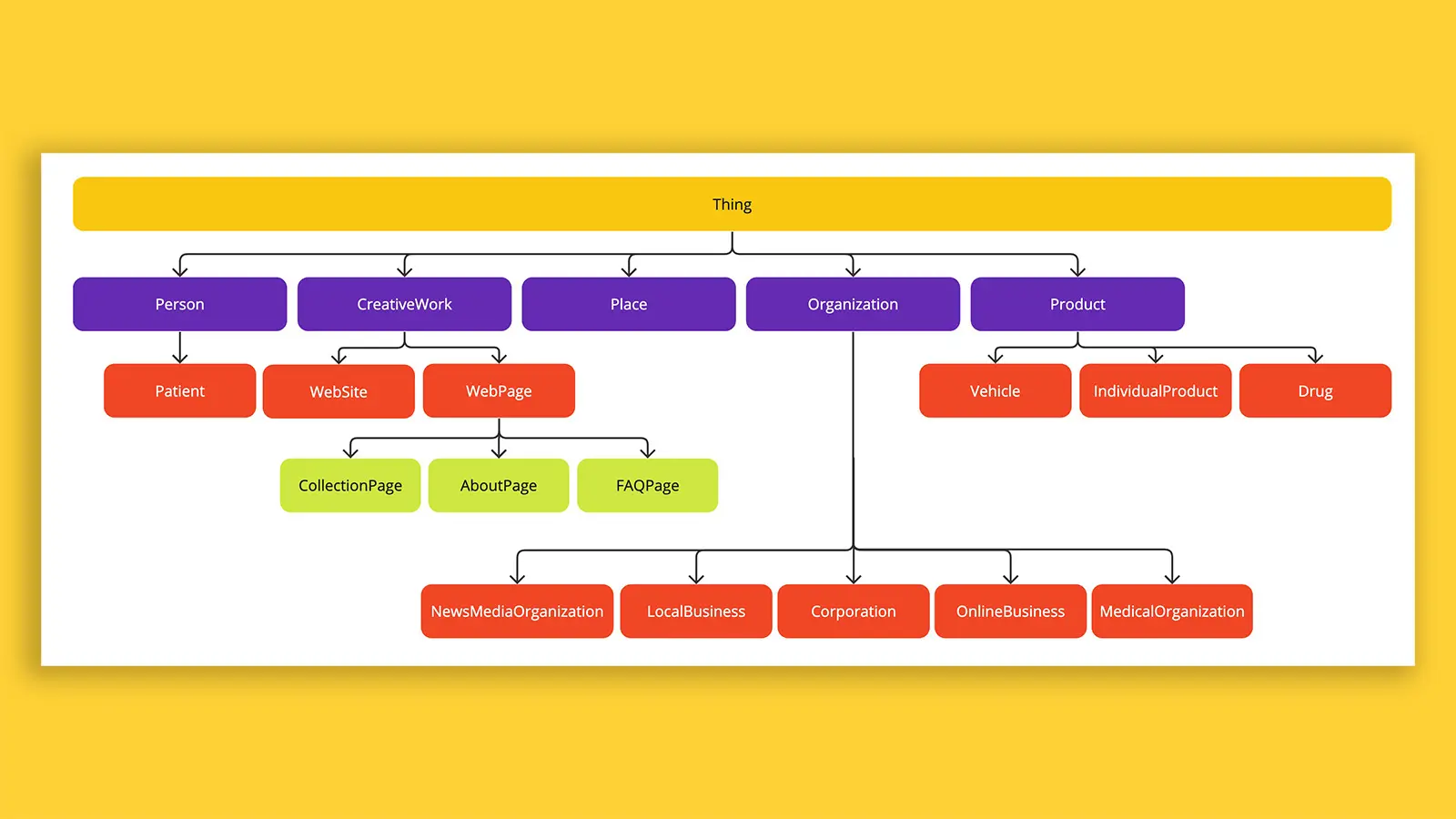
Imagine whispering to Google, “This isn’t just a blog post; it’s a comprehensive analysis with meticulously cited sources and actionable insights!”
With schema, that whisper becomes a megaphone, amplifying your content’s value and propelling it to the forefront of search results.
In addition, the benefits are undeniable:
- Rich Search Snippets: Ditch the monotonous blue links!
Schema unlocks eye-catching snippets showcasing star ratings, event dates, author credentials, and even product prices. Your content transforms from text to tantalizing teaser trailers, enticing users to delve deeper.
- Enhanced Click-Through Rates: Who can resist a recipe adorned with five golden stars and a picture practically begging to be devoured?
Schema highlights the innate appeal of your content, acting as a click magnet and dramatically boosting your organic search traffic.
- Improved Search Engine Relationships: Schema fosters a clear dialogue with search engines, eliminating ambiguity and ensuring they accurately understand your offerings.
This translates to improved ranking potential and the coveted privilege of high visibility.
In other words, investing in schema markup code isn’t just a technical tactic; it’s a strategic decision to empower your website’s discoverability.
So, by equipping search engines with the tools to fully appreciate your content’s brilliance, you unlock the door to online success.
2024 Schema Markup Code Best Practices
Get Granular with Schema Types
In the ever-evolving SEO landscape, 2024 demands precision.
Gone are the days of one-size-fits-all schema approaches. To truly shine, embrace granularity: a laser focus on tailoring schema types to the unique facets of your content.
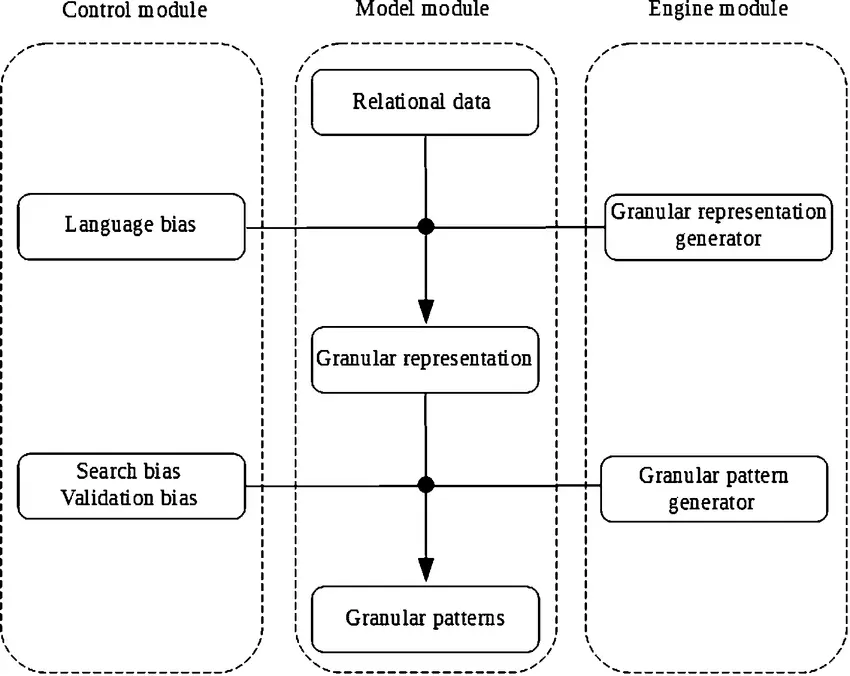
In other words, think of schema markup code types as a chef’s secret ingredients, infusing your web pages with rich, contextual detail. By choosing the right ones, you unlock a treasure trove of benefits:
- Deeper Search Engine Understanding: With specific schema types, you whisper the essence of your content directly into search engine ears. So, no more guessing games – they grasp the nuances of your articles, events, or products, leading to…
- Richer Search Snippets: Schema unlocks tantalizing snippets like star ratings, event dates, author bios, and even prices, transforming your content into eye-catching trailers that scream, “Click me!”
- Stronger Search Engine Relationships: Schema fosters clear communication, ensuring search engines see your content for what it truly is. In addition, this translates to higher rankings, better visibility, and a coveted VIP spot in search results.
Now, let’s get down to the delicious details – choosing the right schema types for your content management feast!
Here Are Some Examples
- For the Content Connoisseur: Articles rejoice! Schema.org offers a smorgasbord of types, from
Article(of course!) toNewsArticle,BlogPosting, and evenReview. - Eventful Extravaganza: Planning a shindig? Schema has your back with types like
Event,LocalBusinessEvent, and evenSportsEvent. Don’t forget to sprinkle in details likestartDate,location, andperformer! - Locally Delicious: Showcasing your brick-and-mortar? Schema’s
LocalBusinesstype is your friend, enriched withopeningHours,address, and evenpriceRange.
Code Cravings
Ready to get your hands dirty with some schema code? Here’s a taste:
| { “@context”: “https://schema.org”, “@type”: “Article”,
“headline”: “2024 Schema Markup Best Practices: Unleashing Granularity”, “author”: { “@type”: “Person”, “name”: “Bard” }, “description”: “Dive into the 2024 schema best practices for tailored types, rich snippets, and skyrocketing click-through rates!”, “datePublished”: “2024-01-29” } |
Forget Static Schema, Embrace AI-Powered Dynamism!
No more tedious manual updates and outdated information!
AI is revolutionizing schema markup, transforming it from a static picture to a responsive, intelligent tool for local businesses. Here’s how:
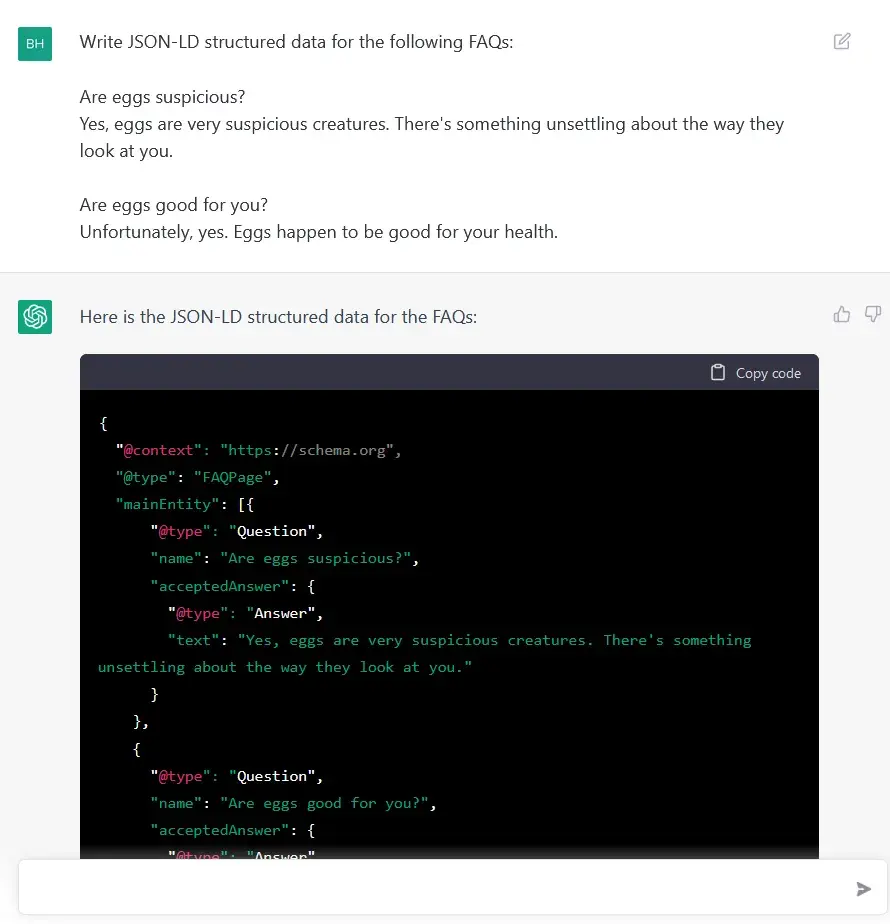
AI’s Magic Touch
- Automation: Bye-bye time-consuming tasks! AI identifies relevant entities & generates code, freeing you for strategic planning.
- Personalization: Tailored schema for each page & user interaction. Imagine menus based on dietary restrictions or services matching search queries!
- Dynamic Optimization: Continuously analyzes data & trends, automatically adjusting schema for updates & best practices. Your schema stays ahead of the curve.
- Predictive Power: Analyzes user behavior & search trends, letting you proactively optimize for emerging opportunities. Future-proof your visibility!
Impact on Your Business
Forget fancy tech jargon, think bottom-line results:
- Traffic Surge: Precise schema attracts qualified leads, boosting website visits.
- Local Search Domination: Optimized schema propels you higher in local results, putting you in front of nearby customers.
- Click-Through Rocket: Richer results with details & reviews entice users to click and explore.
- Engaged Customers: Personalized info & recommendations keep visitors engaged and coming back for more.
- Data-Driven Decisions: AI insights empower you to make informed marketing & SEO decisions.
Don’t be left behind!
Embrace AI-powered schema and unlock a competitive advantage: attract more customers, boost visibility, and achieve sustainable growth. Your local business deserves it!
| Also Check Out: HubSpot AI: The New Age CRM For Improved Operational Efficiency |
Focus on Rich Snippets
Imagine your website content as a row of booths at a bustling market.
But instead of dusty posters and muffled shouts, your products or articles sparkle with eye-catching displays: gleaming star ratings, enticing event dates, author bios radiating authority, and even product prices whispering sweet, sweet deals. In other words, Welcome to the world of rich snippets, the SEO sirens luring users to click and explore.
That is to say, think of rich snippets as the dazzling trailers of your web pages, ditching the boring blue links for captivating teasers that scream, “Click me!”
Each detail – be it a constellation of five golden stars for your recipe, a countdown timer for your upcoming webinar, or the author’s face and bio for your insightful article – acts like a magnet, drawing users in and boosting your click-through rates like never before.
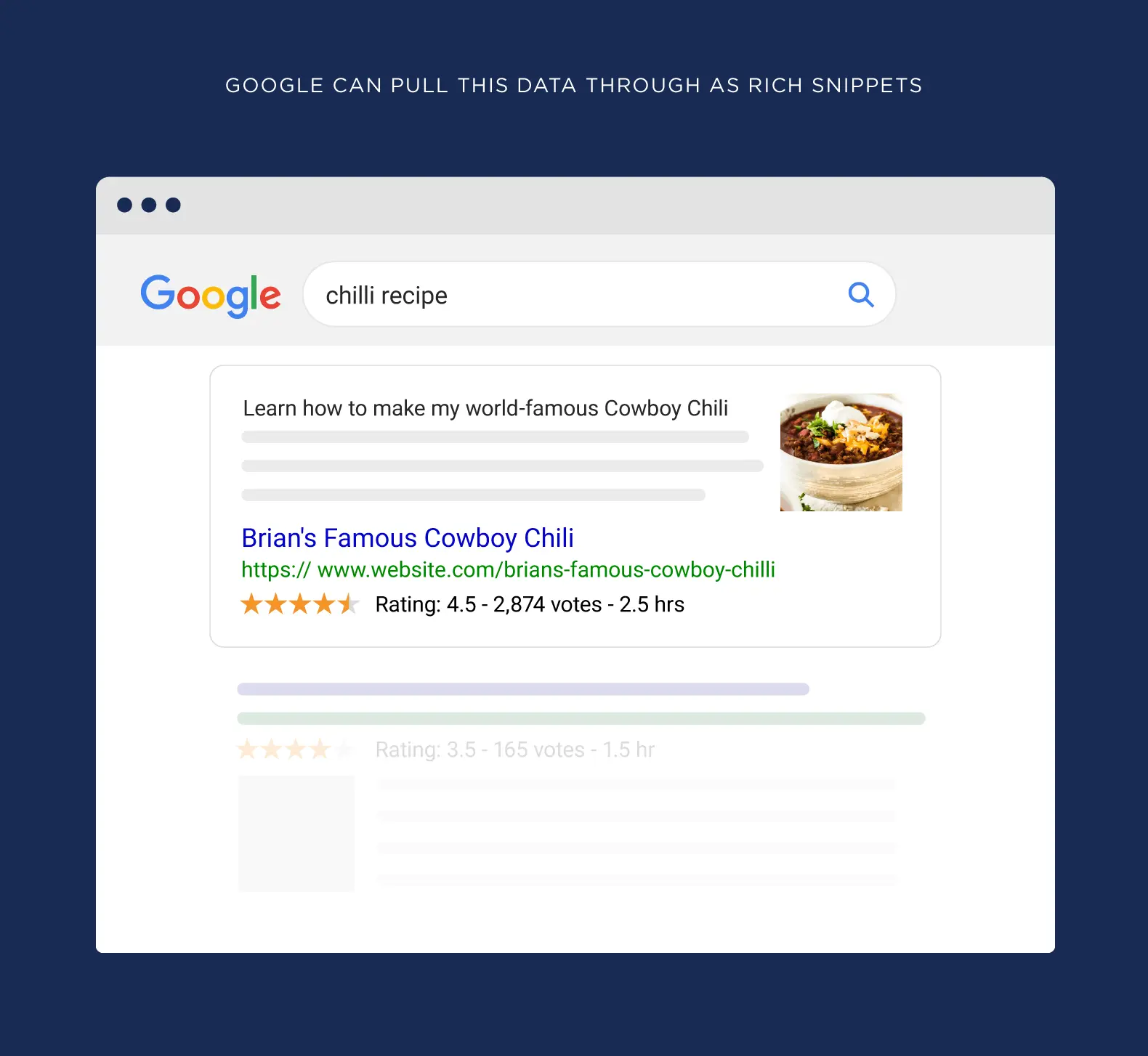
But how do you turn your plain pages into these click-worthy spectacles?
It all boils down to optimizing your schema markup code for rich snippets. Here’s how to sprinkle some sparkly magic on your content:
Starry Reviews
AggregateRating schema shows off those golden stars, luring hungry eyes to your recipes.
| JSON |
| {
“@context”: “https://schema.org”, “@type”: “Recipe”, “name”: “Grandma’s Secret Meatloaf”, “aggregateRating”: { “@type”: “AggregateRating”, “ratingValue”: 5, “reviewCount”: 123 } } |
Ticking Clock of Events
Event schema displays countdown timers for your webinars, workshops, or concerts, creating urgency and clicks.
| JSON |
| {
“@context”: “https://schema.org”, “@type”: “Event”, “name”: “SEO Masterclass”, “startDate”: “2024-02-10”, “endDate”: “2024-02-10”, “eventStatus”: “EventUpcoming” } |
Author Credibility
Person schema showcases your author bio and photo, building trust and connection with readers.
| JSON |
| {
“@context”: “https://schema.org”, “@type”: “Article”, “headline”: “The Future of SEO”, “author”: { “@type”: “Person”, “name”: “Bard”, “image”: “https://bard.google.com/image.jpg” } } |
Price Whispers
Offer schema lets product prices peek out in search results, turning window shoppers into buyers.
| JSON |
| {
“@context”: “https://schema.org”, “@type”: “Product”, “name”: “Cozy Knit Sweater”, “price”: 49.99, “offers”: { “@type”: “Offer”, “priceCurrency”: “USD” } } |
These snippets act like irresistible click magnets, boosting traffic and engagement. Embrace them in 2024 and watch your website shine!
Mobile-First Mindset
In 2024, the smartphone reigns supreme.
Google knows it, and so should you. In other words, forget desktop dinosaurs – mobile-first indexing is the new SEO anthem, meaning your website needs to sparkle on those tiny screens.
But here’s the secret sauce: schema isn’t just for desktops anymore. It’s your weapon for mobile mastery, turning your content into a feast for search engine spiders and smartphone users alike.
In addition, think of it like this: imagine your schema markup code as a delicious website dish. On desktops, it’s served on a beautiful porcelain plate, all fancy and elaborate.
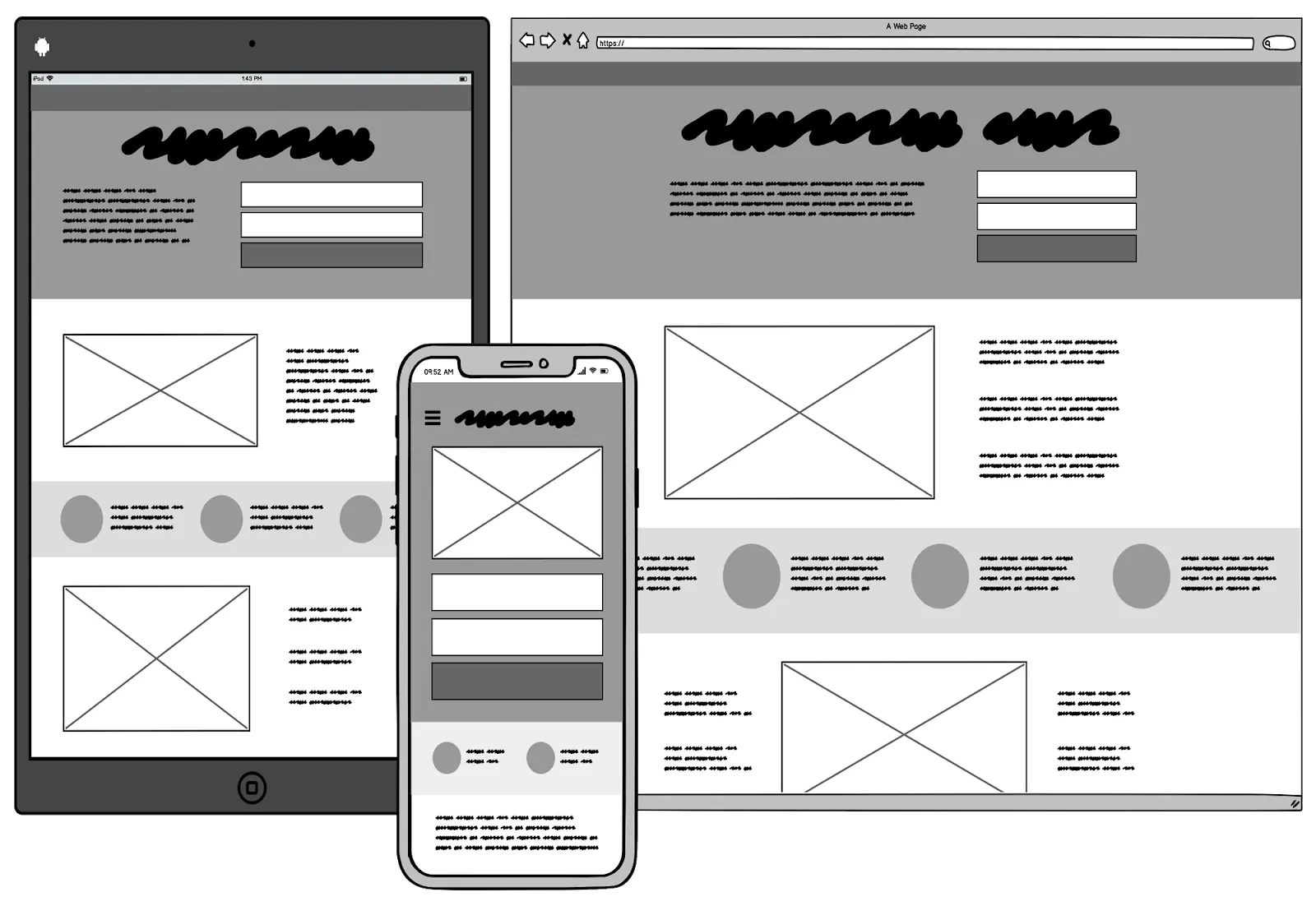
But for mobiles?
You need a sleek, bite-sized tapas plate – still mouthwatering, but optimized for tiny fingers and quick scrolling. That’s what mobile-first schema markup code is all about: conveying the same juicy details (star ratings, event dates, author bios) in a format that pops on smartphones.
And how do you cook up this mobile masterpiece?
Two key ingredients:
- Responsive Design: Ditch the separate mobile site – it’s like serving tapas on a separate table! Adding to that, responsive design lets your schema markup code automatically adjust to any screen size, ensuring Google spiders can crawl and understand your content flawlessly, no matter the device.
- AMP (Accelerated Mobile Pages): Think of AMP as a Michelin-star upgrade for your mobile pages. It strips away unnecessary fluff, making your content load lightning-fast on smartphones. Plus, AMP and schema markup code are best buddies – your mobile snippets will shine even brighter with rich details like star ratings and event dates.
The benefits of mastering this mobile-first mambo are undeniable:
- Higher Rankings: When Google sees your mobile schema markup code singing its heart out, your website climbs the search ladder, putting you front and center for smartphone users.
- Click-Through Rocket Boost: Mobile snippets with mouthwatering details become irresistible click magnets on small screens, sending your traffic soaring like a superhero.
- Happy Mobile Munchers: Smooth crawling and lightning-fast loading thanks to responsive design and AMP keep mobile users happy and engaged, leading to better conversions and loyalty.
Mobile-first schema markup code isn’t just a trend – it’s a necessity.
Structured Data Testing
You’ve crafted the perfect schema markup code magic for your website, your content is shimmering with rich details, and you’re ready to see the clicks roll in.
But hold your horses!
Before unleashing your masterpiece on the web, it’s time for a dress rehearsal – schema testing.
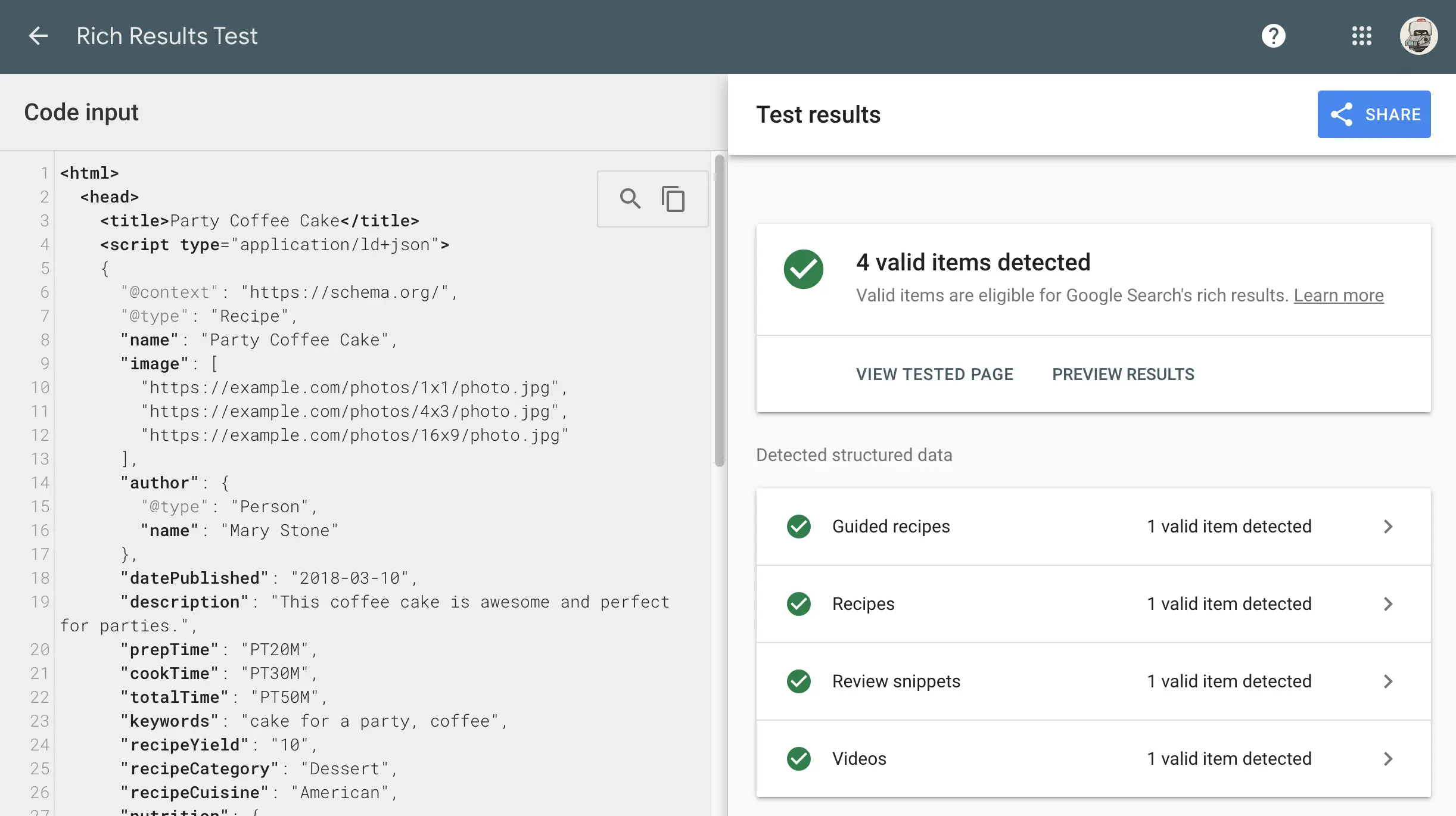
Think of it like taking your website car for a spin before a cross-country road trip.
You wouldn’t hit the highway without checking the tires, right?
Similarly, testing your schema markup code ensures it’s functioning flawlessly, speaking the language of search engines loud and clear.
And for this crucial test drive, we have the perfect companion: Google’s Structured Data Testing Tool. It’s like a mechanic with X-ray vision, scanning your code for any wobbly bits or missing parts. That is to say, just paste your schema markup code, hit analyze, and voila!
You’ll see:
- Green Lights: Happy dance for these!
These areas of your code are spot-on, conveying your content’s essence perfectly.
- Yellow Warnings: Tread with caution.
These areas might have minor inconsistencies or ambiguities. Fix them up, and you’ll be good to go.
- Red Alerts: Stop signs galore!
These errors are preventing search engines from understanding your content. Fix them immediately to ensure your schema markup code sings its full potential.
Remember, even the smallest error can throw a wrench in your SEO plans. Similarly, a missing comma or a misspelled property name can be enough to leave search engines scratching their heads, wondering what your dazzling recipe or insightful article is all about.
But the rewards of a clean bill of health are bountiful:
- Accurate Understanding: By fixing errors, you ensure search engines grasp the true nature of your content, leading to better ranking and visibility.
- Rich Snippet Shine: Clean schema markup code unlocks eye-catching snippets with star ratings, event dates, and author bios, turning your content into irresistible click magnets.
- Smooth Engines, Smooth Life: When you speak their language clearly, search engines show your website love, boosting your credibility and trust in their eyes.
So, before hitting publish, take your schema markup code for a spin with the Structured Data Testing Tool. Similarly, fix any bumps in the road, and watch your website zoom past the competition in the SEO race!
Embrace JSON-LD
Forget the days of wrestling with complex microdata or struggling with RDFa’s syntax. In 2024, there’s one language for structured data that reigns supreme: JSON-LD.
Think of it as the cool kid of schema markup code formats, speaking Google’s language fluently and making your website shine with rich details.
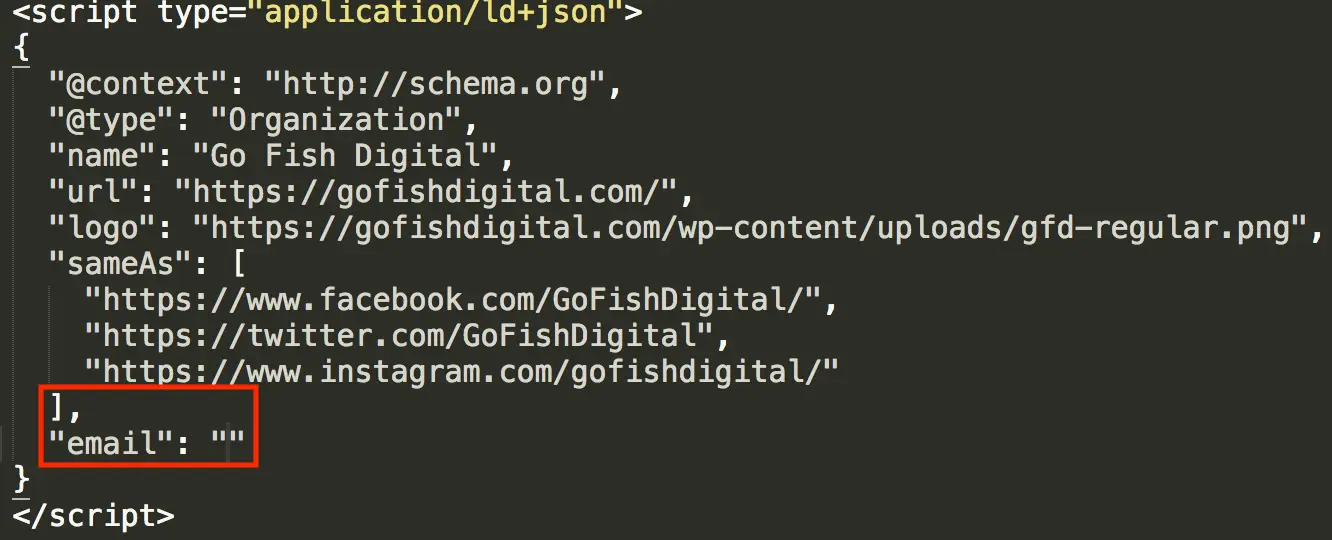
But why all the love for JSON-LD?
Here’s the scoop:
- Lightweight Champion: Unlike its clunky rivals, JSON-LD is a featherweight. It uses familiar JSON syntax, making it easy to read, write, and integrate into your existing website code. No more headaches for you or your developers!
- Flexibility is Key: JSON-LD bends and flexes to fit your needs. It seamlessly adapts to any type of website or content, whether you’re showcasing stunning recipes, eye-catching events, or insightful articles. No limitations, just pure schema power!
- Google’s BFF: Let’s not beat around the bush – Google adores JSON-LD. It’s their preferred format for structured data, meaning your schema markup code has a higher chance of being understood and loved by the search engine giant. Win-win!
Ready to jump on the JSON-LD bandwagon?
Here’s your roadmap to success:
- Get Schooled: Dive into the world of schema on Schema.org. Explore the vast library of types and properties to find the perfect fit for your content. That is to say, think tasty
Recipeschema markup code for your culinary creations or the dynamicEventtype for your upcoming webinar. - Craft Your Code: Write your JSON-LD code directly into your website’s HTML or use helpful generators like Google’s Structured Data Markup Helper. Remember, keep it clean and consistent, following JSON’s basic principles.
- Test and Fix: Don’t let errors throw a wrench in your plans! Use Google’s Structured Data Testing Tool to identify and fix any issues in your code. A clean bill of health ensures your schema markup code speaks loud and clear.
- Monitor and Adapt: The world of SEO is ever-evolving. So, stay updated on schema markup code changes and best practices through Google’s official documentation and blog. In other words, your flexible JSON-LD code will make adapting to these changes a breeze.
By embracing JSON-LD, you unlock a treasure trove of SEO benefits:
- Higher Rankings: When Google understands your relevant content perfectly, your website climbs the search ladder, putting you front and center for hungry users.
- Rich Snippet Magic: JSON-LD unlocks dazzling snippets with star ratings, event dates, and author bios, turning your relevant content into irresistible click magnets.
- Happy Users, Happy You: Accurate search results and lightning-fast loading times thanks to JSON-LD’s lightweight nature keep users engaged and satisfied, boosting conversions and loyalty.
JSON-LD is your key to unlocking the full potential of structured data. In other words, it’s lightweight, flexible, and adored by Google – the perfect recipe for SEO success in 2024 and beyond.
So, what are you waiting for? Dive into the world of JSON-LD, craft your schema markup code masterpiece, and watch your website shine brighter than ever before!
Stay Updated with Schema.org
The world of SEO is a bustling marketplace, and schema markup code is the ever-evolving fashion line you want to rock. While JSON-LD might be your trusty outfit, new trends and styles emerge on Schema.org all the time.
So, to keep your website looking fresh and trendy (read: high-ranking and click-worthy) in the eyes of search engines, regular updates are essential.
In other words, think of it like updating your wardrobe for the new season.
Remember when everyone was rocking feathered boas? Yeah, not so hot anymore.
Similarly, schema markup code types and properties get upgraded, retired, or even brand new ones pop up. Staying in the loop ensures you’re not sporting outdated features that might even hurt your rankings.

Here’s why keeping your schema markup code up-to-date is a must-have skill for any SEO ninja:
- Unlock New Features: New schema markup code types and properties mean new ways to showcase your content’s brilliance. Imagine highlighting your podcast with the spanking-new
PodcastEpisodetype or flaunting your cooking classes with the just-releasedCookingClassschema. Updates unlock a treasure trove of possibilities to make your content shine brighter. - Stay Ahead of the Curve: Search engines love websites that adapt and embrace the latest trends. Similarly, keeping your schema markup code current shows you’re savvy and invested in SEO, putting you in their good graces (and higher up in search results).
- Avoid the Ranking Downgrade: Don’t get stuck in the schema fashion faux pas of using outdated or deprecated types. Search engines might throw shade your way, potentially lowering your rankings and reducing your visibility.
So, how do you become a true schema makeup code update aficionado?
Here are your secret weapons:
- Schema.org Blog: This is your front-row seat to the latest schema fashion show. So, subscribe to their blog and get notified about new types, properties, and best practices.
- Schema.org Announcements: Stay in the loop with official announcements on the Schema.org website.
- Community Hub: Join the vibrant Schema.org community forum and discussions. You’ll be surrounded by fellow schema enthusiasts and SEO experts, keeping your ears tuned to the latest trends.
By embracing the dynamic nature of schema, you ensure your website is always dressed to impress in the eyes of search engines and users alike.
Remember, an updated schema isn’t just a technical detail – it’s a statement of your commitment to quality and staying ahead of the SEO curve.
So, channel your inner fashionista, keep your schema markup code on-trend, and watch your website rise to the top of the search engine results page!
Go Beyond Search Engines
The search landscape is shifting, and staying ahead of the curve requires more than just the right keywords.
Enter schema, the secret sauce that transforms your website from a faceless entity into a beacon of rich information for search engines and voice assistants alike.

In other words, think of it as the Rosetta Stone of your online presence, unlocking a treasure trove of SEO benefits that send your visibility and engagement soaring.
But schema markup code isn’t just a mystical incantation – it’s a structured language that speaks directly to search engines and voice assistants.
That is to say, by adding schema markup code to your website, you’re essentially whispering detailed information about your content in their ears, ensuring they understand what you offer and why it matters.
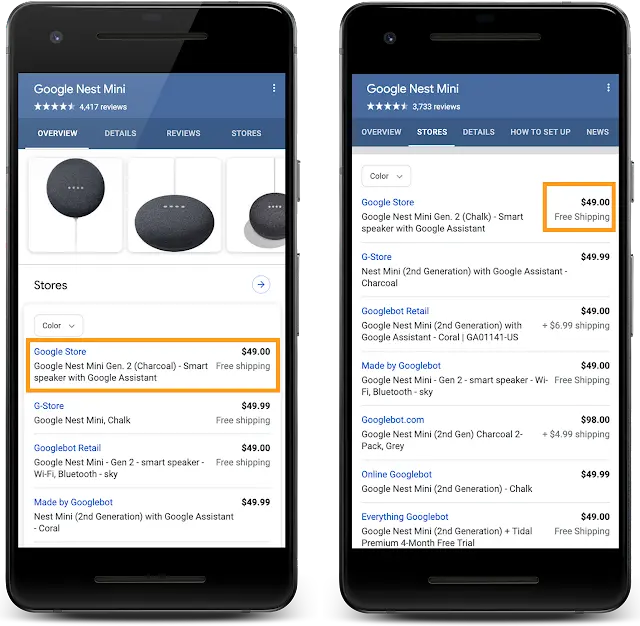
Here’s how schema markup code can turn you into an SEO superhero:
1. Rich Snippet Revolution: Ditch the boring blue links!
That is to say, schema markup code unlocks dazzling snippets with star ratings for your recipes, event dates for your webinars, and author bios for your blog posts. These eye-catching teasers become irresistible click magnets, drive more traffic and engagement like never before.
Code Example
| JSON |
| {
“@context”: “https://schema.org”, “@type”: “Recipe”, “name”: “Grandma’s Secret Meatloaf”, “aggregateRating”: { “@type”: “AggregateRating”, “ratingValue”: 5, “reviewCount”: 123 } } |
2. Mobile-First Mastery: Forget desktop dinosaurs – Google loves mobile, and so should you.
Schema helps your website shine on tiny screens, ensuring smooth crawling and ranking even for smartphone users. In addition, responsive design lets your schema markup code adapt seamlessly to any device, while AMP (Accelerated Mobile Pages) turbocharges your relevant content for lightning-fast loading.
Code Example (Responsive Design)
| HTML |
| <meta name=”viewport” content=”width=device-width, initial-scale=1.0″> |
3. Voice Assistant Whisperer: The future is conversational, and schema is your key to the voice assistant kingdom.
So, by providing rich details about your products and services, you ensure assistants like Siri, Alexa, and Google Assistant understand you perfectly. In addition, this translates to top-of-voice results, richer voice snippets, and a seamless user experience that leaves your brand at the forefront of the voice search revolution.
Code Example (Product Description with Offer Schema)
| JSON |
| {
“@context”: “https://schema.org”, “@type”: “Product”, “name”: “Cozy Knit Sweater”, “description”: “This super-soft sweater is perfect for chilly days!”, “offers”: { “@type”: “Offer”, “price”: 49.99, “priceCurrency”: “USD” } } |
4. Data-Driven Insights: Schema isn’t just a one-way street.
It provides valuable insights into how users interact with your content. In other words, by analyzing schema data, you gain a deeper understanding of what resonates with your audience, allowing you to tailor your content and strategy for optimal results.
5. Future-Proofing your SEO: The world of SEO is ever-evolving, but schema keeps you ahead of the curve.
Moreover, by embracing the latest schema types and best practices, you ensure your website remains a beacon of discoverability in the ever-changing search landscape.
So remember, schema isn’t just about technical details – it’s about building a deeper connection with search engines and voice assistants.
In other words, by speaking their language, you unlock a world of SEO potential, propelling your website to the top of the search ladder and captivating users in a way that plain text simply can’t.
Local Businesses, Rejoice!
Forget megaphone marketing – in the age of smartphones, local search is king.
And for you, intrepid local business owner, that means Local Business schema is your secret weapon for attracting customers right from their pockets.
Therefore, think of it as a neon sign for your online presence, guiding hungry eyes and curious minds straight to your doorstep (or storefront, as it were).
But how does this magic work? Local Business schema is like a detailed map you whisper to search engines, pinpointing your location, hours, offerings, and even that killer ambiance you’ve worked so hard to create.
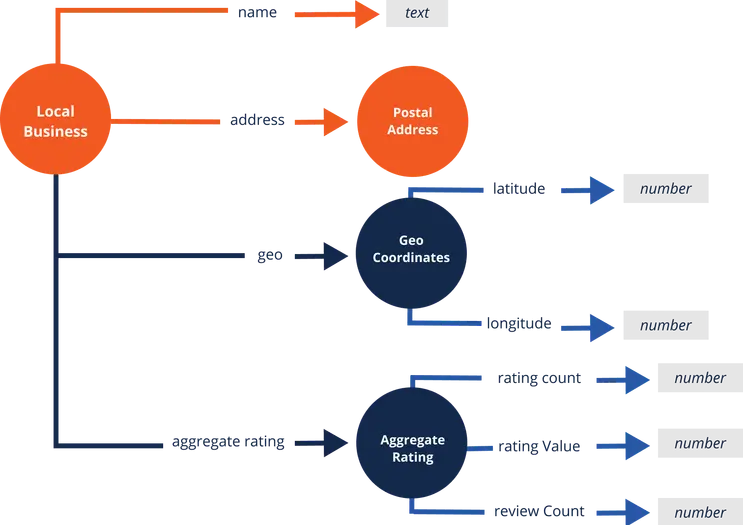
Similarly, here’s how to harness the power of Local Business schema, code snippets included:
1. Paint a Vibrant Digital Portrait of Your Business
| JSON |
| {
“@context”: “https://schema.org”, “@type”: “LocalBusiness”, “name”: “Your Business Name”, “address”: { “@type”: “PostalAddress”, “streetAddress”: “123 Main Street”, “addressLocality”: “Your City”, “addressRegion”: “Your State”, “postalCode”: “12345” }, “telephone”: “(555) 555-5555”, “openingHours”: “Mo-Fr 09:00-17:00”, “hasMenu”: “https://yourwebsite.com/menu”, “servesCuisine”: “American”, // Example of specific cuisine “acceptsReservations”: “true” // Example of additional property } |
- Address: Provide crystal clear directions, like a GPS for the online world.
- Phone Number: Make it easy to connect with one tap, bridging the gap between digital discovery and in-person experience.
- Opening Hours: Set clear expectations and avoid frustration, building trust through transparency.
- Menus: Tantalize taste buds with mouthwatering descriptions and irresistible photos of your signature dishes.
- Virtual Tours: Offer a sneak peek into your vibrant atmosphere, using videos or media objects to create a virtual experience.
- Special Offers: Highlight limited-time deals and promotions to capture attention and drive more traffic.
2. Become a Beacon in Local Searches
This rich data transforms you into a shining star in local search results. That is to say, imagine someone craving a cozy coffee shop – your schema-enhanced listing, showcasing high star ratings and captivating photos of your inviting ambiance, rises to the top.
Click!
Similarly, a new customer steps through your door, ready to savor a warm cup of your signature blend, all thanks to the magic of structured data.
3. Gain Priceless Insights and Optimize Your Marketing
Track clicks, analyze reviews, and uncover what resonates with your audience. Moreover, this data-driven wisdom empowers you to tailor your offerings and marketing strategies to create experiences that truly delight your local customers.
4. Easy Implementation, No Coding Wand Required
Visit Schema.org and explore the LocalBusiness type.
You’ll find a treasure trove of properties to describe your business, from “hasBikeParking” to “servesCuisine”. That is to say, no technical wizardry needed, just clear and concise information about your unique establishment.
Think Richly, Not Richly
The siren song of SEO can be tempting, urging you to jam-pack your schema with keywords and inflate your offerings to dizzying heights.
But hold your horses, amigo!
In the realm of schema, true riches lie not in embellishment, but in authenticity. Google, the all-seeing search engine, has a nose for fakers, and keyword stuffing or misleading information can land you faster in the penalty box than a rogue shopping cart on Black Friday.
So, think of schema as a conversation with search engines. Similarly, be honest, transparent, and let your unique voice shine through.
That is to say, showcase your rich tapestry of offerings and genuine ambiance, not fabricated features or promises you can’t keep. Remember, it’s quality, not quantity, that wins the SEO game.

Here’s why authenticity reigns supreme in schema:
- Google abhors deception: Don’t try to pull a fast one on the big G. Its algorithms are sharper than a diamond-encrusted chef’s knife, and they can sniff out inflated star ratings, fabricated reviews, and descriptions taller than a Texas skyscraper.
- Misleading information erodes trust: Customers rely on accurate schema data to make informed decisions. Adding to that, landing at a greasy spoon expecting a Michelin-starred meal will leave them fuming and leave negative reviews in their wake. This hurts your reputation and search ranking faster than you can say “keyword salad.”
- Authenticity attracts the right tribe: By showcasing your true colors, you attract customers who resonate with your vibe and appreciate your genuine offerings. That is to say, this leads to loyal patrons, positive word-of-mouth, and organic growth in your local search presence.
So, ditch the “Think Richly, Get Rich Quick” mentality. Embrace the “Think Authentically, Build a Sustainable Empire” approach. In other words, Fill your schema with vivid descriptions, captivating photos, and a dash of your unique charm.
Furthermore, let your data reflect the magic of your business, and you’ll attract the right customers who will help you flourish in the local search landscape.
So remember, in the schema game, honesty is the best – and most profitable – policy. Moreover, think “quality over quantity,” “authenticity over exaggeration,” and watch your local SEO success blossom naturally. Above all, the only stuffing you’ll need is that extra helping of deliciousness in your signature dish!
Measure and Adapt
Congratulations, local business champion!
You’ve crafted your schema masterpiece, a vibrant portrait of your business shining in the digital realm. But the journey doesn’t end with publication.
In addition, think of schema as a living document, an evolving conversation with search engines and potential customers. In other words, to truly master your local SEO game, you must embrace the feedback loop: Measure, Analyze, Adapt.
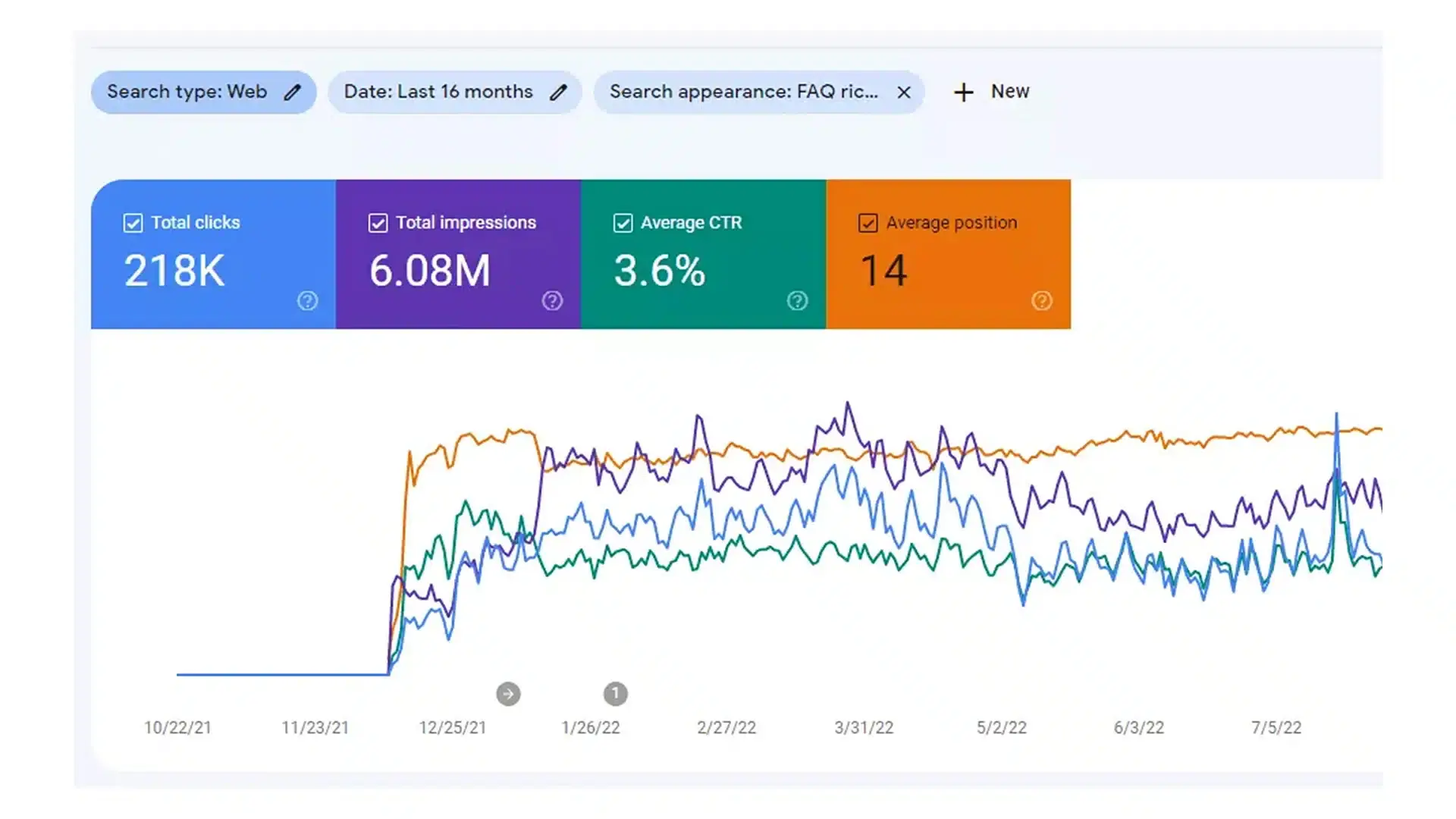
Tracking your schema’s impact is like reading a treasure map to SEO gold.
Monitor key metrics like:
- Click-through rates (CTRs): Are searchers drawn to your schema-enhanced listing like moths to a flame? High CTRs indicate your data is captivating and enticing clicks.
- Local search ranking: Does your business rise like a phoenix in local search results? Improved rankings reveal that your schema data is resonating with search engines.
- Engagement: Are customers interacting with your listings? Reviews, calls, and website visits show that your schema is sparking curiosity and driving action.
Analyzing this data is like cracking the SEO code.
You can uncover:
- Strengths: What aspects of your schema are resonating most with search engines and customers? Double down on those elements and amplify your strengths.
- Weaknesses: Are specific details falling flat? Revise and refine your schema data to ensure it accurately reflects your offerings and captures customer interest.
- Trends: Does local search behavior shift over time? Adapt your schema strategy to stay ahead of the curve and keep your local SEO ship sailing smoothly.
So remember, schema is a dynamic tool, not a set-and-forget recipe. That is to say, by measuring, analyzing, and adapting, you unlock its full potential and refine your local SEO strategy for continuous improvement.
Therefore, think of it as an ongoing experiment, constantly evolving to attract the right customers and build a loyal following in your local community.
Here are some tips for effective schema data analysis:
- Regularly monitor your chosen metrics. Stay tuned to the pulse of your local SEO performance.
- Use analytics tools: Google Search Console and other platforms offer valuable insights into your schema’s impact.
- Compare your data with local competitors: Benchmark your performance and identify areas for improvement.
- Don’t be afraid to experiment: Test different approaches and see what resonates best with your target audience.
As you measure and adapt, you’ll build a schema strategy that’s as unique and dynamic as your business itself.
You’ll attract the right customers, boost your local search presence, and establish your brand as a beacon of authenticity and quality in your community.
So, grab your data compass, set sail on the SEO seas, and watch your local business flourish with the power of schema!
Challenges and Concerns
Remember, challenges are learning opportunities.
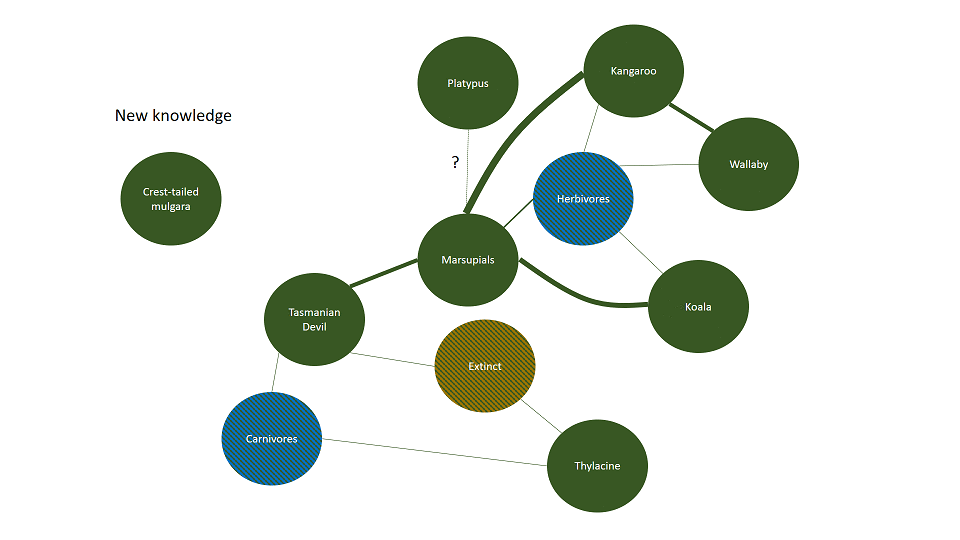
With the following tips, you can build a rock-solid schema and attract customers like a welcoming front door. So, keep building, keep learning, and watch your local business thrive!
Schema Stumbles: Avoiding Common Mistakes
Building your schema is like building a house – you need a good foundation and the right materials.
So, here are some common stumbles to avoid:
- Keyword Craze: Think natural language, not keyword salad! Google likes real descriptions, not forced keywords. Tell your story honestly.
- Data Mismatch: Don’t be a map leading to the wrong address! Moreover, make sure your schema matches your website and other online listings. Consistency is key.
- Missing Pieces: Don’t forget the doorknobs! That is to say, leave out info like hours or menus, and customers will be lost. Fill in all the important details.
- Testing Tribulations: Don’t fear the tests! They’re your friends, pointing out errors and helping you improve. Moreover, use tools like Google Search Console to polish your schema like a pro.
Troubleshooting Tips: Fixing Schema Hiccups
Even the best builders encounter problems. So, here’s how to handle schema snags:
- Error Messages: Google gives clear error messages – like a helpful neighbor pointing out cracks in the wall. Fix them step-by-step.
- Testing Tool Talk: Learn the testing language. “Warnings” are like friendly suggestions, while “errors” are urgent repairs needed. Fix them both for a perfect house.
- Seek Support: Don’t be afraid to ask for help! Online communities and experts can offer guidance, just like experienced contractors.
Conclusion
You’ve learned the power of authentic schema for your local business. Remember: keep it real, track your results, and adapt when needed. So now, go out there and shine!
For an extra boost, let MakeWebBetter be your local SEO sidekick. We’ll help you implement schema like a pro, analyze your data like a champ, and optimize your strategy for lasting local search love.
Therefore, let’s make your business the local star it deserves.










wow amazing , thk a lot , i will implementation this soon
Thanks. I’m glad you liked the post.
You have given very deeply and A to Z information about schema. Never read article like this. Very nice. If possible send me your every new article notification on my mail id.
Thanks Devang. I am delighted that you find this post interesting. Keep reading and stay in touch.
Hey,
Nice information.
I have a question, What is difference between Schema Markup and Rich snippet.
I am confused so asked here, If you can answer.
Thanks.
Hi Marc,
Schema markup is used to tell the structure of a given page like it tell search engine about the page. Whereas these schema help to bring Rich snippet over SERPs. Rich snippets are the additional information which is shown in search result and also increases CTRs.
Hope this answer has helped you to solve your doubt.
Schema markup is a great way to help your website stand out from your SEO competitors. In fact, one case study determined that web pages with a structured data markup can rank up to four positions higher than those that do not utilize a data markup. Therefore, we can say that a better schema markup means better SEO.
Thanks Nemat, I got much information about Schema markup through published articles on your website. I was not getting the practical and indeed data about schema markup but from your website I got all essential keys
Thanks, Jason for the great feedback. Pleased to hear from you. Please let me know if you need any help along the way 🙂
Thank you so much I never found the indeed and favorable article like this. Keep posted these beneficial articles. I was confused about meta description and schema markup but I visited this website I got the answers of all queries regarding schema.
Thanks. Keep it up.
Hi Liza jo,
Thank You for your valuable words. Glad that you liked my post. Keep Reading more latest post.